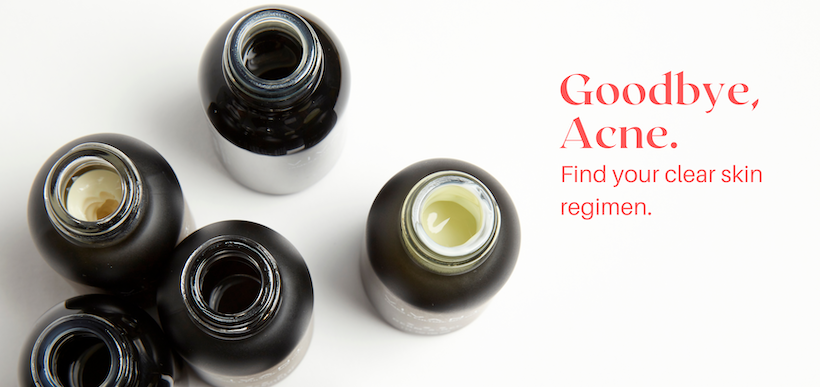Notes from the Lab: Neuropeptides vs. Neurotoxins

Neuropeptides are a new class of specialized peptides revolutionizing skincare as a topical alternative to or enhancer of neurotoxin injectables. They are often referred to as “nature’s Botox” because of their anti-wrinkle effect, but can the topical wonder really compare to injectable neurotoxins?
While the softer focus results of neuropeptides won’t convince die-hard Botox fans to drop the needle anytime soon, these innovative topical molecules have a raft of benefits that neurotoxins don’t, making them a powerful tool in combatting signs of aging, and depending on your skincare goals, maybe an even better one. For those looking for smoother, plumper, more elastic texture along with a reduction in expression lines, neuropeptides are your holy grail.
Table of content
What are neuropeptides?
Neuropeptides are small chains of amino acids produced and released by neurons. Of the more than 100 identified neuropeptide molecules in the neural system, many play a role in skin functions, acting as chemical messengers to modulate biological activity, including inflammatory response, cell proliferation, tissue repair, and lipogenesis (synthesis of fatty acids and ceramides).
How do neuropeptides work in skincare?
Applied topically, neuropeptides combat signs of aging by targeting receptors that modulate production of inflammatory cytokines, wound healing, cellular proliferation, and other processes in the skin. They can also inhibit the release of neurotransmitters involved in facial muscle contractions that cause wrinkles.
How do neuropeptides compare to neurotoxins?
Both neuropeptides and neurotoxins are chemical messengers from our nerve cells that regulate, modulate, or inhibit certain functions. Neuropeptides used in skincare mimic the body’s natural processes targeting the receptors involved in skin functions, while botulinum toxins are neurotoxin proteins derived from the Clostridium botulinum bacterium.
Though from different sources, both neuropeptides and neurotoxins work in similar ways by inhibiting the release of neurotransmitters that cause facial muscles to contract and form wrinkles. However, being applied topically rather than injected into the muscle, the effect of neuropeptides is less dramatic than that of neurotoxins. Neuropeptides don’t freeze or immobilize the muscles. Instead, they relax muscle movement to reduce expression lines.
What neuropeptides have that neurotoxins don’t is the ability to reduce inflammation, boost wound healing, stimulate collagen production, and increase hydration to improve both texture and elasticity.
Neuropeptides are an excellent choice on their own, especially if you are not a fan of needles. For those who use injectables, neuropeptides will help to extend the effects and provide the longer-term benefits of improved texture, hydration, collagen support, and reduced inflammation.
Which Vivant products contain neuropeptides?
Many of the products in our new FF3 Technology-powered line contain neuropeptides. FF3 Technology combines innovative ingredients with an advanced delivery system to ensure the optimized absorption of actives.
FF3 Biointensive GF
A radically regenerative serum to restore volume and vibrance in fatigued or hormone-depleted skin.
FF3 Triple Repair Complex
Ultra-targeted recovery serum to retexturize, firm, and restore clarity in resistant, sun-damaged skin.
FF3 Hydra Intensive HA
A hyaluronic acid-rich serum delivering multi-level hydration + extracellular matrix support for buoyancy, radiance, and lift.


Comments